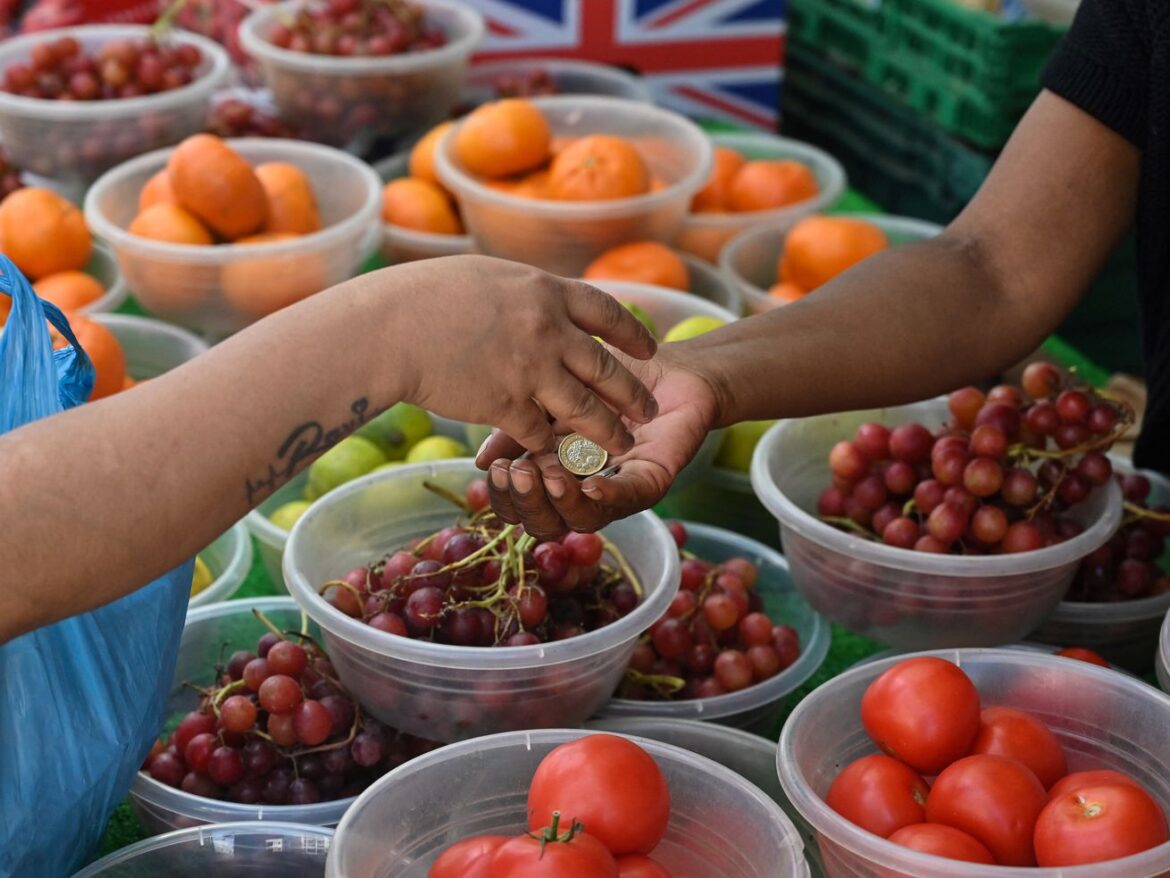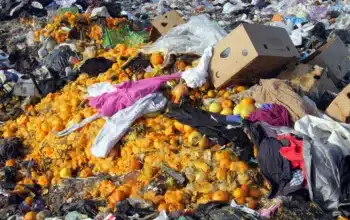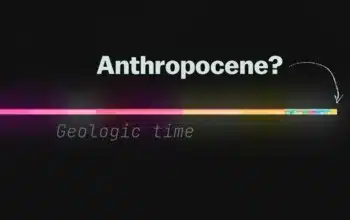Alicia Kennedy’s new book explores the tensions and triumphs of leaving meat behind.
There has never been a better time to ditch meat. Climate change, health, and animal cruelty are among the many reasons why some leave animals (partially or entirely) off their plates.
Luckily, folks seem to be catching on. Vegetable-forward dishes are taking over food magazines, TikTok, and the restaurant scene. Along with some greater cultural acceptance of plant-based diets, there has been a growing recognition that animal-free cuisine can taste great; it doesn’t have to mean compromising on flavor.
“There is so much possibility of just feeding people a good dish,” food writer Alicia Kennedy told me in a recent conversation. “That can be an overlooked strategy of changing people’s minds. A lot of people never even notice if something is vegan or vegetarian until you tell them it is. They never even think about the fact that there’s no meat in it. They just ate it and it was good.”
That said, there’s still a lot of progress left to be made. The share of Americans who call themselves vegetarian or vegan is still very small. And US meat consumption has only increased over the last few decades. How we think about and make progress, of course, is still richly debated among different groups, from vegans to conscientious omnivores, with distinct perspectives on how to build the future of food.
Kennedy’s new book — No Meat Required: The Cultural History and Culinary Future of Plant-Based Eating — gives a historical overview of the diverse movements that have decided to leave meat off the plate, and critiques our industrialized food system.
/cdn.vox-cdn.com/uploads/chorus_asset/file/24854502/9780807069172.jpg)
Beacon Press
From the counterculture of the 1960s and ’70s and seminal books like Frances Moore Lappé’s Diet for a Small Planet, to the ecofeminists who recognized the connections between the oppression of women and the oppression of animals, to the ’90s zine-toting punks who became influential vegan chefs, Kennedy weaves a fascinating look into how the meat-free movement’s history informs its future.
She also argues that the present-day plant-based movement has become all too sanitized of these stories in favor of an industrialized approach to plant-based meats that can reach a lot of people — but at the risk of reproducing the same mistakes as Big Meat, such as consolidating power and complicating preexisting social justice labor issues.
“There had been so many people approaching a plant-based diet from the perspective of challenging norms and oppressive systems,” Kennedy said. “Now it’s like, ‘Oh, we can just kind of keep all the same stuff. We’ll just make it plant-based.’ It’s interesting to watch the same problems in a different font, so to speak.”
According to Kennedy, a just food system would make local food abundant and accessible. For a future of meatless eating to get there will take work, collaboration, and transparency. But hopefully, Kennedy says, it’s a future that will make food taste better — and in easy reach — for more people.
I spoke with Kennedy about how the “meatless plurality” can come together, and the importance of knowing the radical histories of plant-forward eating. A lightly edited transcript follows.
Why has it been so hard to make a dent in US meat consumption, despite plant-based diets’ presence here?
There’s been this terrible reputation that vegans and vegetarians only care about ethics and don’t care about food. And when we’re talking about something that we relate to chiefly regarding diet, food takes up a central part. You have to make appealing food to make people find the whole idea of giving up meat appealing.
So historically, yes, there has been a focus on blander foods; food in general in the US has gotten a bit better and more nuanced. We realized there are lots of techniques that people have used for meat that we can apply to vegetables to get better flavor from them.
Most people are less attached to eating meat all the time than we might think they are. They want to eat good food that’s plant-based. They want to know how to cook plant-based food in a way that is as satisfying as eating meat.
Also, we’ve done a bit of a disservice to the narrative around plant-based food by focusing so much on alternative meats. Getting away from the false notion that plant-based is a category of product versus plant-based as an approach to every type of food that exists. It is a huge part of making people cut back on meat in a way that’s so necessary.
In your book, you talk about the plurality of motivations for being vegetarian or vegan, from the spiritual to political. That there’s everything from Indigenous, anticapitalist veganism to a consumerist and normative plant-based approach that, although it leaves meat off the table, doesn’t change our reliance on mass production and capitalism. Can you explain why the distinction is important?
It’s really important to think of how much these other folks were really focused on changing society and really changing people’s attachments to various systems and structures. With Frances Moore Lappé, it was, “Let’s eat differently and stop world hunger.” With the eco-feminists, it was, “Let’s stop having this patriarchal relationship to animals and the land.” With the punk anarchists’ perspective, it was, “Let’s reject corporate food culture and build something new.”
When we’re talking about this newer moment — where it’s this plant-based food product with a capitalist growth model — we’re mapping the same [unjust] structures onto a plant-based approach. We’re not going to see people question why we’ve let factory farming happen for so long. It’s not going to lead to questions of scale of consumption of one type of food being problematic. It’s not going to lead to questions about what is the best way to build and strengthen regional food systems within the United States. It’s just going to lead to this kind of one-for-one replacement.
You’re critical of agricultural intensification in the book, writing that “the idea of the ‘plant-based diet’ — whether vegan, vegetarian, or flexible — needs to be reinvigorated and understood as a political stance that rejects efficient but profit-driven industrialized agriculture as much as it abhors the slaughter of confined animals.” This is a pretty significant division among people who work on the future of food.
Could you explain what’s meant by the concept of industrialized agriculture and what it would mean to reject it? Is there a way to incorporate different types of solutions to the many different problems in the global food system, like world hunger, carbon emissions, and land use?
I’m talking about corporate agribusiness that has this stranglehold on the food and the land. In the US, we are very supermarket-minded. When we think about food, there’s been a very strong and pervasive desire to keep the origins of food and the people who have a role in that opaque — whether we’re talking about the absent referent of the animal being slaughtered or we’re talking about farmworkers dying of heat exhaustion in the fields. When I am talking about rejecting industrialized agriculture, I mean rejecting that opacity and that distance — the idea that our food comes from nowhere, and no one has been harmed in that.
A massive part of the American food project is to keep people from believing that they should know where their food comes from, or that if you care where your food comes from, that’s kind of an elite affectation. If we’re talking about someone like Alice Waters, their approach to food is seen as elitist because it’s very focused on farm-to-table and seasonality.
But when we’re talking about strengthening regional food systems away from overly efficiency-driven, scale-driven, growth-driven profit motives, then we’re talking about: What is the best thing for this ecosystem? How do we protect the workers’ rights who are part of this system? How do we make locally grown seasonal food both abundant and accessible to folks? Part of a plant-based ethos is to get away from the corporate control and lack of transparency when it comes to the food system.
You argue it is not enough to just leave meat off the plate, but that ingredients should support local food systems. Can you go into why this is an important element of food justice?
I live in Puerto Rico, so I have a different perspective on what it means to support local [food systems] and why that’s a significant thing to do. It’s really easy when you’re in bigger cities to detach what that means from what that looks like. At this point, so many folks are experiencing the effects of climate change in terms of disaster. Here, it’s so important to support the local economy because 85 percent of food in the supermarkets is imported. If we don’t support local farmers, especially those practicing agroecology — which is much more resilient to disaster, storms, and heat — we would starve if a disaster strikes.
We’re paying an exorbitant amount for food here because the US dictates that all food is imported on US-owned and -staffed ships that have to make stops in the States before they come here.
For me, this experience is inextricable from my belief that making local and regional food systems more robust means that those spaces have more in place to withstand disaster when it comes. It’s difficult to relate the significance of the local food economy to folks who take it for granted across a lot of the US. It’s understood as this nice, frivolous thing to go to the farmers market with your tote bag. But for me, it’s very much about whether the farm is small and is using only a few industrial inputs.
If we’re reliant on centralized production of any one thing, then we’re susceptible to that thing either being taken out by disease or being taken out by political or economic circumstance. And that leaves us very vulnerable as citizens.
Here at Future Perfect, we’ve written a lot about possible solutions like cell-cultivated meat. In your book, you’re open about your skepticism around such technological initiatives. What are some of the biggest drawbacks for you? What are some of the avenues of improvement?
I am skeptical because of the ownership of the technology and the opacity of it. If these companies who produce these products are going to be transparent, I would be a lot more comfortable. I would also be more comfortable if these things were only talked about as a piece of a vision. It mimics a narrative around meat where it’s, “We eat too much meat, so let’s just switch it out and eat too much lab meat.” I don’t like the narrative around it, especially in mainstream food media that’s not digging deep into these ideas. It’s just like, “Oh, we’re gonna be fine in the future. Don’t worry about it. Because you’re gonna swap out your steak for a lab steak.”
We are talking about this like it’s the one thing that’s going to solve the problem. We can use this as one tool in a toolbox and focus on other things, like strengthening the regional food systems or focusing on agroecology. I think we have to focus on strengthening so much else before we focus on pouring resources into developing or scaling up things we don’t know as much about. We don’t know people’s potential reactions to them — whether palate-wise or nutritionally — and we don’t know about energy usage and efficiency.
The notion that it is such a grand solution, the only solution, is really troubling. If it’s just part of an approach, that’s a perfectly fine way of looking at it.
How can we encourage more collaboration and good-faith discussion among the many, many plant-based groups?
Yeah, that’s a tough one. It’s so important for me to talk to other folks even when I don’t agree with their approach. I do find that there is a lot of anger and resentment, and factionalism that really does a disservice to moving the conversation forward. I should be in conversation with the animal rights-motivated ethical vegan, even if we’re going to be at each other’s throats. It doesn’t do a service to the perception of the whole plant-based sphere; it’s really important that we get to a place where we can say, “These are our terms. These are things that we really want, and we can really go for them.” And obviously the end of industrial animal agriculture is the one thing we can all agree on.
You can pick up No Meat Required in bookstores, libraries, and online booksellers.



